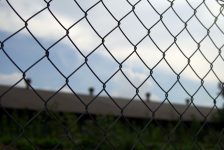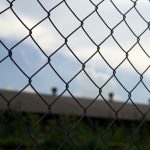Positive Results for Bourke Justice Reinvestment Trial

Zeb Holmes and Ugur Nedim
Early reports suggest the NSW outback town of Bourke is already benefiting from a three-year trial which aims to reduce crime rates by addressing the causes of offending, rather than simply punishing offenders after the event.
Bourke was chosen for the latest ‘justice reinvestment’ trial due primarily to its high crime rates, with disadvantaged Indigenous youth being drawn towards offending as a result of a range of factors, including the lack of employment opportunities and hope for the future.
What is Justice Reinvestment?
Justice reinvestment seeks to reduce crime by redirecting public funds away from enforcement and towards prevention.
The idea was famously presented by the US Open Society Institute in 2003, and stems from the fact that offending often occurs due to socio-economic factors, rather than an inherent disposition towards crime.
Justice reinvestment programs aim to break the cycle of crime by addressing the risk factors which lead to offending, including:
- Poverty,
- Abuse and neglect,
- Lack of education and employment opportunities,
- Lack of housing support,
- Mental health issues, and
- Drug and alcohol addiction.
A different approach
Traditional approaches to criminal justice generally aim to prosecute people if they are suspected of committing crimes, which does little to reduce crime or reoffending rates.
That approach has created enormous social and economic costs in punitive nations such as the United States and Australia, contributing to rising prison populations.
In 1998, Tony Fitzgerald QC, a judge of the Queensland Court of Appeal, described our current approach to criminal justice as:
“… a hopelessly blunt instrument of social policy… [whose] implementation by the Courts is a totally inadequate substitute for improved education, health, housing and employment.”
Despite the fact that overall crime rates have been declining since 2001, ‘tough on crime’ policies have seen imprisonment rates rising. In March 2015, there were 35,467 inmates in Australia’s prisons, a 40 per cent increase over the past decade.
When it comes to Indigenous youth, the Human Rights Commission has described incarceration rates as ‘another Stolen Generation.’ Currently, 56% of children detained in NSW are Indigenous despite the fact that Aboriginal and Torres Strait Islanders represent just 4.4% of the state’s population.
Traditional models are also very expensive. For example, NSW spends an average of $652 per day on every child in custody, and $160 per day for each adult. And of course that figure does not take into account the costs of policing, court proceedings or the indirect economic costs to society.
The current approach is also woefully inadequate when it comes to reducing reoffending rates. In NSW, for example, 48% of all inmates who leave prison return within two years – learning new criminal skills and making new criminal connections the ‘inside’. Those who are imprisoned are also at risk of stigmatisation, social alienation and disengagement with education and employment – all of which increase the risk of reoffending after release.
But does Justice Reinvestment work?
Most of the research into justice reinvestment has taken place in the US, and while it is a relatively new field of study, the interim outcomes from participating states are already extremely promising.
A 2014 report found that seventeen states are projected to save as much as $4.6 billion through policies designed to control correctional spending and prevent crime before it occurs.
In terms of individual States, Texas, being the highest incarcerator, was the biggest winner out of its justice reinvestment program.
Texas turned to its present program after seeing a 300% increase in prisoner numbers between 1985 and 2005. By 2008/09, the state had saved an estimated $210.5 million, and falling prisoner numbers are expected to result in a further saving of $233 million – as it is becoming increasingly unnecessary for the state to build three proposed new prisons. In fact, the state is currently experiencing its lowest crime rate since 1968.
The Washington Institute for Public Policy has analysed many of the policies put forward by existing justice reinvestment programs. The Institute estimated that every dollar spent on community programs has led to enormous savings in enforcement. For example, it estimated that:
- $34.50 is saved for every dollar spent on Education and Employment Training- $34.50,
- $22.96 is saved for every dollar spent on Family based therapy for young offenders,
- $11.69 is saved for every dollar spent on Aggression replacement therapy,
- $9.27 is saved for every dollar spent on Cognitive behavioural therapy.
The Bourke Program
The Bourke trial is attempting to address several risk factors through community spending and engagement.
The trial recently expanded to include Bourke’s Early Years Transition Centre which helps disadvantaged four-year old children to get ready for formal schooling, so they aren’t left behind when they start school.
Money has been spent teaching young people to drive for free, as well as assisting with paperwork such as birth certificates and driver licences to reduce the number of driving offences committed by teenagers.
It has also allocated funds to reduce family violence, given that Bourke has one of the highest rates of domestic violence in the state. Police have paired up with counsellors to identify and educate offenders and those at risk about the effects of such incidents on couples and children, and strategies to prevent violence before it happens.
Money is also being spent on housing and employment support, mental health and drug and alcohol programs.
Effectiveness
Partly as a result of the driving initiative, the number of people imprisoned in Bourke for driving offences has been the lowest in a decade.
Early reports also suggest a “sharp drop” in domestic violence offences – although the figure is yet to be quantified.
It is hoped that investing in housing, employment and other support programs will instill hope for the future and result in a decline in disenfranchised youth turning to crime.
Alistair Ferguson, executive director of Aboriginal Community group Maranguka, is buoyed by the early results, saying “I’m confident to say that the work that’s being carried out in Bourke is becoming the catalyst for the rest of the nation”.
Image credit: The Star Observer






